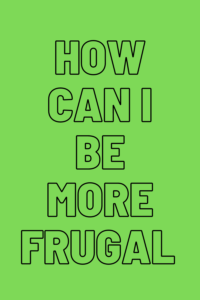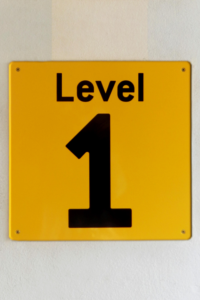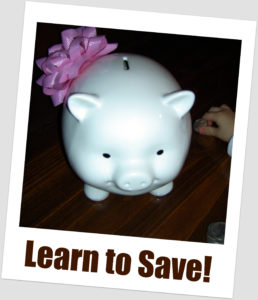How Can I Be More Frugal
How can I be more frugal? What you can do to become more frugal depends on what you’re doing now. The object of a frugal lifestyle is to maximize what your money does for you. If you want more money to pursue your dreams, you first need to return to the basics of frugal living. After we’re solid on the basics, we can find ways to augment our money’s efficiency in purchasing power and growth.
Like many other qualities, frugality is on a continuum. You can always find more frugal ways to limit extravagance and waste. Each particular advance may seem minuscule; today may seem a lot like yesterday. But, after being frugal for a while, you can look back and see a significant difference now in the state of your finances compared to when you started. (I know this because you want to be more frugal and look to the future rather than the past.)
Advice on being frugal is abundant. Among other things, people like me preach about how to save money, how to stop wasting money, and how to earn more money. There’s a lot of good information available, but you have to figure out how you’ll put it into play. Since there’re no cookie-cutter lives, each of us gets to pick and choose the extent to which we use these practices to implement a plan to be more frugal.
A popular concept of a frugal person is someone who is focused solely on saving a lot of money. It’s true, to be frugal, you have to save. Unfortunately, people trying to be frugal sometimes get imprisoned in a mode that only concentrates on accumulating funds. When they do, they’re likely to end up miserly rather than frugal… You know, a mindset goes with pulling off a successful frugal lifestyle.
How Can I Be More Frugal
If you really want to be more frugal, get creative. The frugal mindset incorporates planning and goal setting. What do you want your money to do for you?
The Beginning
Some early attempts at being frugal may be motivated by deep debt or living hand-to-mouth. Often people act in desperation. When we need to find money just to get by, many of us focus on scrimping to have money when it’s due and on finding the next deal. How’s that so different from being broke and living hand-to-mouth?
If frugal living doesn’t look much different than the financial mess (disaster? hardship?) we’re trying to escape, why would any of us bother with it for long? (We also tend to forget that messes can take a while to clean up.) Too many people give up too soon on being frugal…but weren’t really even being frugal. Others think about what’s going on. They realize that most financial and otherwise messes result from poor planning (How about no planning?) or unforeseeable events. They recognize a need to impose order on their finances. Hopefully, by research or luck, they learn frugal practices like budgeting, living within their means, and systematically becoming debt free. They want to control what their money does. They want to keep it from “just disappearing” and they think being more frugal is the way to do it.
Think Of The Possibilities
As we see our financial situation improve through frugal practices, it follows that we begin to think about what could be done if we were more frugal? Do I want to travel? Go back to school? Put my kids through college? Have a spectacular wedding? Open my own business? Help other people? What do I want out of life? And can my money make it possible?
You may have adopted a frugal lifestyle to stop a financial train wreck; you needed to work your way out of debt or just make ends meet until something changed. As your situation moderated, something did change—your mindset. You realized that you could make your money do something for you, something like make it from one payday to the next without running out of money. (How I Trained Myself To Save Money).
You’ve learned to make money take care of you in the short term by being frugal—right? By becoming more frugal your money should do more than just meet today’s needs. You want your money to move you into a secure future—sooner, rather than later. So, what’s more frugal than budgeting, living within your means, and staying debt free? Essentially, the decision to be more frugal is all about the “me and mine” for each of us. (And that doesn’t mean you don’t care about others. It means you care enough about what’s important to you to ensure you can accomplish it.)
Remember The Basics
Think about being more frugal in order to accomplish life goals. You’ve seen how the basic tenets of living within your means and staying debt free have helped you. You already understand the need for knowing when, where, and how you spend your money; you use a spending journal. You’re accustomed to living on a budget, a guide to keep your spending within limits. You’re probably using sinking funds to finance the cost of some upcoming events. Hopefully, you’ve started an emergency fund. (Its function is to guard your financial stability when something unexpected happens.)
Level Up
Any and all of the above require that you save money, but being more frugal isn’t just about saving more money. It’s not about using more coupons, walking to more places, or finding the best deal in town. To maximize your efforts you’ll want to continue those and other—similar—practices, but you also have to do something to get past “Today”.
Up to this point, taking care of “Today” has probably been the focus of your frugal lifestyle: For the most part, your budget is a guide for living now. Living within your means, as well as attaining and maintaining freedom from debt has helped you achieve financial resources that are currently stable.
Now you need to up the ante. You need to do three more frugal things:
- Set some long-term goals that are achieved in stages or culminate in the future. In other words, do some planning.
- Generate money you don’t need for living now. (For simplicity, I call it extra money.) Use it to invest in your future. Actually, you must invest it in order finance to your future.
- As you put your extra money to work building the future you envision, don’t be ignorant. Get some help or education in this area.
Goal Setting
Goal setting is an important step. It’s a frugal practice in that it affects the efficient application of time, effort, and resources. You’ll have to prioritize your goals. Just as with daily issues, the funding of future needs and wants requires consideration and perspective.
Earning Extra Money
You can earn extra money any number of ways: work overtime, take on a second job or side gig, pursue education or training for a better job. (That last one requires spending money to make money, a topic I plan to address in a future post.) When you want extra money, you can find a way to bring it in to maintain your lifestyle. Also, any raises or bonuses from your employer could be used as extra money; just continue to live like you never didn’t receive one.
Once you have extra money, if you’re intent on being more frugal, you’ll already have plans for it. That said, if even though you’re accumulating extra funds, you might not be quite ready to begin investing. In that case, you can save it in a sinking fund designated for investment. Just don’t wait too long. The amount banks pay in interest on a savings accounts is negligible.
Here’s another thought: If one is available, consider taking advantage of your employer’s 401k program. (A 401k should give you more of a profit than a savings account.) If you already make contributions to a 401k, consider raising them. (There are limits, but you can contribute a great deal of your take-home pay.) If you do either of these, you’ll want to continue earning and increase the extra money you’re bringing in; you may need to rely on those funds in order to meet your living expenses. That might not be such a bad idea… There are a number of successful businesses, services, and industries that had their beginnings in someone’s garage, spare bedroom, or basement. Think Amazon, Harley Davidson, and Niki (Niki was first run from the trunk of a car), and there are plenty of others.
Take Advantage of Ancillary Resources
Given the era in which we live, investment is essential to achieving any life goal that requires financing. Money is, of course, our prime resource when it comes to investing. The art and science of investing is, however, a mystery to most of us. When people want (more likely, need) to do more than just participate in their employer’s 401k program, the how-to knowledge for making your own investments can be obtained from courses in books, online, and in classrooms. But…do you really have the time to “invest” in that education—right now, while you’re busy accumulating the funds for investing? A trained and experienced broker with an investment firm can be a great asset when it’s time to make decisions on type of investment, how much, and when.
One More Frugal Concept
Some of you might wonder why I would endorse paying for a broker’s service. Isn’t being frugal about saving money?
My answer is, yes, there is a price to pay, but it can be frugal to pay for an advantage. (That advantage is the broker’s experience and acumen.) Using money to your advantage is another trait of the frugal mindset. Always think about how your money can serve you best—which applies to all facets of your life in which you believe being more frugal will be your advantage.
If your question is, “how can I be more frugal”? Think about how your money can be best used in this situation.






